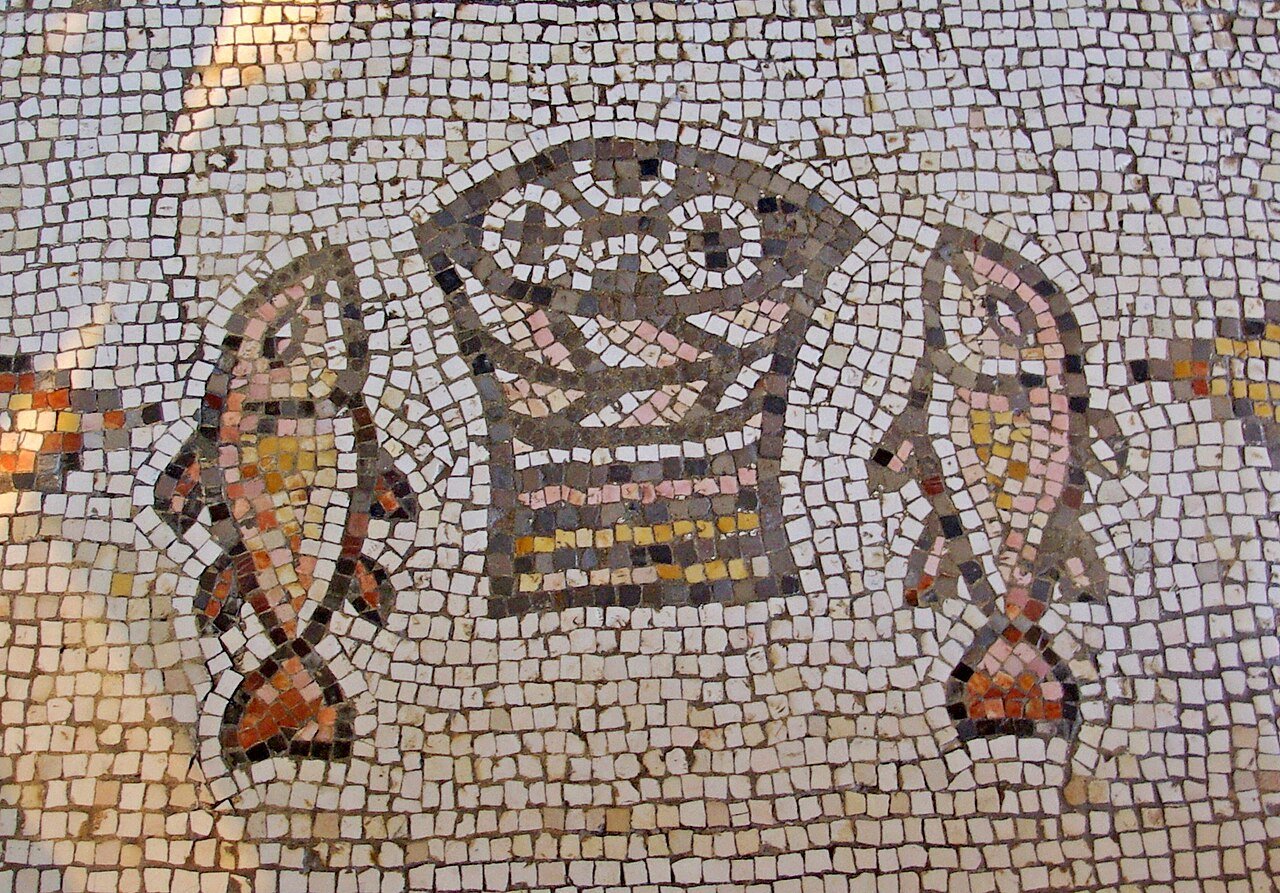The Feeding of the Five Thousand (AQA GCSE Religious Studies A): Revision Note
Exam code: 8062
30 The apostles gathered around Jesus, and told him all that they had done and taught. 31 He said to them, “Come away to a deserted place all by yourselves and rest a while.” For many were coming and going, and they had no leisure even to eat. 32 And they went away in the boat to a deserted place by themselves. 33 Now many saw them going and recognized them, and they hurried there on foot from all the towns and arrived ahead of them. 34 As he went ashore, he saw a great crowd; and he had compassion for them, because they were like sheep without a shepherd; and he began to teach them many things. 35 When it grew late, his disciples came to him and said, “This is a deserted place, and the hour is now very late; 36 send them away so that they may go into the surrounding country and villages and buy something for themselves to eat.” 37 But he answered them, “You give them something to eat.” They said to him, “Are we to go and buy two hundred denarii[a (opens in a new tab)] worth of bread, and give it to them to eat?” 38 And he said to them, “How many loaves have you? Go and see.” When they had found out, they said, “Five, and two fish.” 39 Then he ordered them to get all the people to sit down in groups on the green grass. 40 So they sat down in groups of hundreds and of fifties. 41 Taking the five loaves and the two fish, he looked up to heaven, and blessed and broke the loaves, and gave them to his disciples to set before the people; and he divided the two fish among them all. 42 And all ate and were filled; 43 and they took up twelve baskets full of broken pieces and of the fish. 44 Those who had eaten the loaves numbered five thousand men. (Mark 6:30-44)
The feeding of the five thousand
The feeding of the five thousand is one of Jesus’s most famous miracles, retold in all four gospels
This amount of evidence leads many Christians to believe that it is probably true rather than a metaphor
This is known as a nature miracle: Jesus demonstrated God’s power by breaking the rules of nature

Mosaic from the fifth century CE showing bread and fish in a church at Tabgha, Lake Galilee, near the location of the feeding of the five thousand
Attribution:
Brotvermehrungskirche in Tabgha, Mosaik: vier Brote und zwei Fische, Public Domain
The role of the disciples at the feeding of the five thousand
Jesus performed the miracle of the feeding of the five thousand in response to his disciples’ practical concern that the people who had been listening to him teach for a long time would need to eat something
Jesus challenged the disciples to feed the people
They were dismayed at this because of the scale of the challenge — they realised that the crowd was so large that they would never be able to afford food for all of them
Jesus told the disciples to find out what food the people had
The people only had five loaves of bread and two fish
Jesus blessed and broke the loaves and fish and told the disciples to share them out among the people
There was so much food that there was a lot left after everyone had eaten
The disciples collected 12 baskets of leftover food
The symbolism of the meal
This meal would have reminded Jews of the time of the story of Moses and the Israelites in the wilderness, after they had escaped slavery under the pharaoh
Jesus is like Moses in this story: Moses prayed to God in a deserted place, and God provided enough manna (bread-like food) for the Israelites to be fed
Jesus said prayers and blessings over the bread and fish in a deserted place, and everyone had enough to eat
This symbolises that Jesus fulfilled the prophecy in Deuteronomy that God would raise up a prophet like Moses (Deuteronomy 18:15)
This meal is also symbolic of the Messianic Banquet
The Old Testament says that the Messiah would ensure that everyone was fed
The number of people Jesus fed at this meal fulfilled this prophecy
The act of breaking bread and blessing it is symbolic of the similar actions Jesus performed at the Last Supper, and so Christians remember this when they share Holy Communion today
The items blessed are themselves symbolic:
The bread is symbolic of the manna and the bread at the Last Supper, but the number of loaves — five — also represents the Torah, the first five books of the Old Testament that form Jewish law
The fish could represent the origins of many of the disciples, who had been fishermen; the number two could symbolise the two tablets on which the Ten Commandments were recorded
The feeding of the people symbolises God’s care for his people: that he will feed them, both physically and spiritually
It also shows how seemingly small offerings can lead to great things
Worked Example
Which Old Testament figure does Jesus resemble in the feeding of the five thousand?
A. David
B. Elijah
C. Moses
D. Abraham
Answer:
Correct answer: C. Moses.
Jesus, like Moses, prays in a deserted place, and God provides food for the people, recalling the manna given to the Israelites in the wilderness.
Examiner Tips and Tricks
Study the events of the Last Supper in the topic The Final Days in Jerusalem to ensure you have the full picture of how this miracle has elements in common with Jesus’s words and actions at his last meal with his disciples.

Unlock more, it's free!
Was this revision note helpful?
